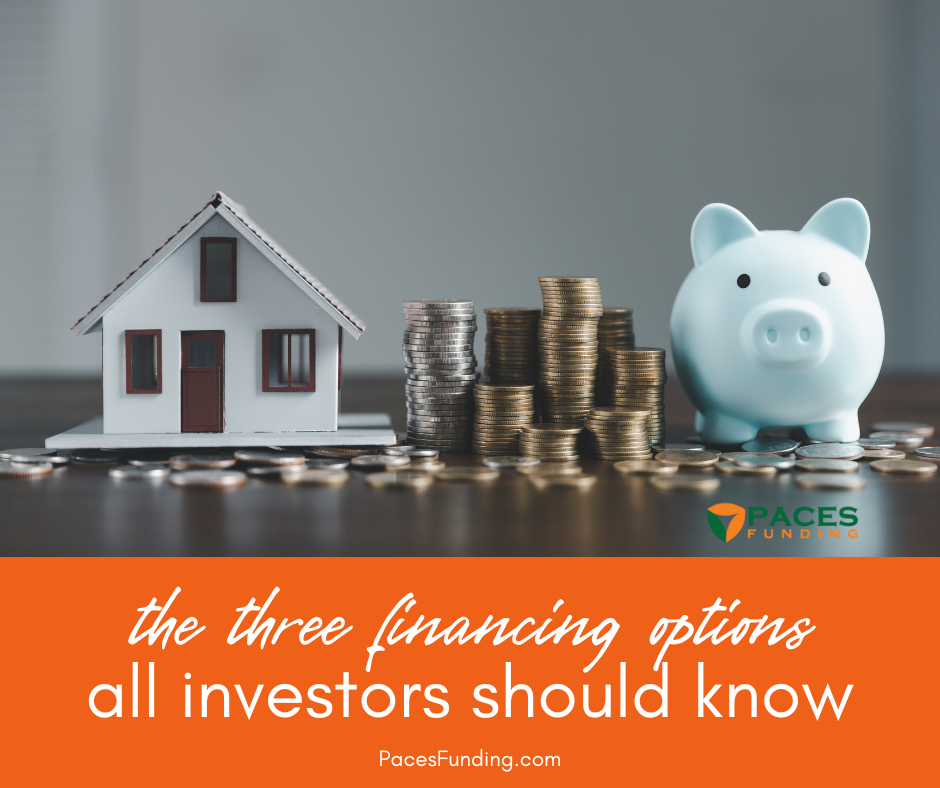
The 3 Financing Options Every New Investor Should Understand
Real estate investors have a number of options when it comes to borrowing money to fund an investment. Most common are conventional loans, hard money loans and private money loans, which the following sections explain.
The 3 Financing Options Every New Investor Should Understand
Check out these three common options for investors:
- Conventional loans. These are loans from banks or other financial institutions that follow standard underwriting guidelines. They typically have a longer application process, a higher credit score requirement and require a larger down payment.
- Hard money loans. These are short-term loans from private investors or companies that use the property being invested in as collateral. They have a quicker application process, fewer credit requirements, and can fund a higher percentage of the purchase price. However, they also have a higher interest rate and shorter repayment term.
- Private money loans. These are loans from private individuals, often real estate investors, that use the property being invested in as collateral. They have a quicker application process, fewer credit requirements and can fund a higher percentage of the purchase price, similar to hard money loans.
Each type of financing has its own advantages and disadvantages, and it is important to consider your specific needs and goals before choosing one. It’s advisable to consult a financial advisor or lender for personalized advice.
Related: Should You Allow Pets in Your Rental Property?
Advantages and Disadvantages of Conventional Loans
Advantages: Lower interest rates, longer repayment terms, potentially more favorable terms and conditions.
Disadvantages: Longer application process, higher credit score requirements, larger down payment requirements.
Advantages and Disadvantages of Hard Money Loans
Advantages: Quicker application process, fewer credit requirements, can fund a higher percentage of the purchase price.
Disadvantages: Higher interest rates, shorter repayment terms, potentially more stringent terms and conditions.
Advantages and Disadvantages of Private Money Loans
Advantages: Quicker application process, fewer credit requirements, can fund a higher percentage of the purchase price.
Disadvantages: Higher interest rates, shorter repayment terms, potentially more stringent terms and conditions, potential difficulty finding a private lender.
Related: How to Make a Small Bathroom More Attractive to Prospective Buyers
It’s important to note that these are generalizations, and the specifics of each type of financing may vary depending on the lender and the loan terms. It’s important to carefully evaluate each option and compare the terms and conditions before making a decision.
How to Decide What Type of Loan is Right for You
When deciding which type of loan is right for you as a real estate investor, there are several factors to consider:
- Purpose of the loan: What is the intended use of the loan? Is it for a short-term flip, a long-term rental property, or something else? The purpose of the loan will help determine the length of repayment, the interest rate, and the amount of money needed.
- Time horizon: How quickly do you need the funds? If you need funds quickly, a hard money loan or a private money loan may be a better option than a conventional loan.
- Credit score and financial history: Do you have a good credit score and financial history? If not, a hard money loan or private money loan may be easier to obtain than a conventional loan.
- Property characteristics: What is the property you want to invest in like? What is its value and potential for appreciation? This can impact the amount of money you can borrow and the terms of the loan.
- Available funds: How much money do you have available for a down payment? If you have a large down payment, a conventional loan may be a better option.
- Interest rates: What is the current interest rate environment? Are rates expected to rise or fall in the near future? This can impact the cost of borrowing and the long-term profitability of the investment.
By considering these factors, you can make an informed decision on which type of loan is right for you and your investment goals. It’s important to consult a financial advisor or lender for personalized advice.
Related: 3 Creative Ways to Come Up With a Down Payment for an Investment Property
Do You Need a Hard Money Loan?
Paces Funding is the top hard money lender in Georgia, North Carolina, South Carolina and Tennessee. Apply for a hard money loan here or click through our site to find out how we can help you now!














